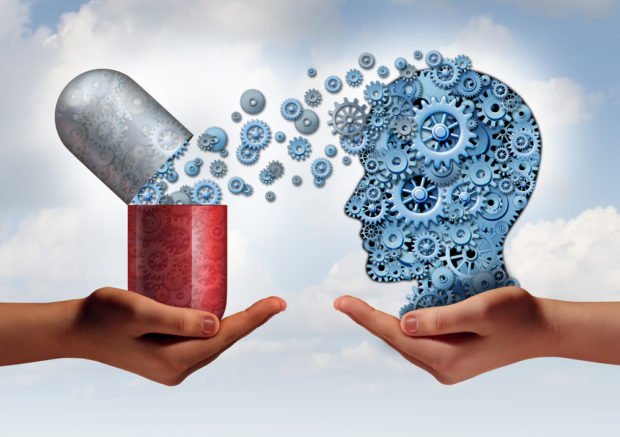Mental health and addiction are two separate, but complex issues. It is also possible for someone to suffer from both. This guide will talk about the relationship between the two. Longevity Live Paid Content.
We will provide 10 points provided by scientists. It’s no secret that many people who suffer from addiction also have mental illnesses. Most of them have never had a prior diagnosis.
If you are looking to get the help you need for addiction and your mental health, Gallus Detox will be able to point you in the right direction. You can visit their website at https://www.gallusdetox.com/denver-drug-rehab/ Let’s begin by looking at the following points below.
1. Mental health and addiction are closely intertwined
People struggling with mental health disorders such as anxiety, depression, bipolar disorder, or PTSD are at a higher risk for addiction. Addiction itself is believed to be one of the causes of mental illness.
However, this isn’t the case. There may be some confusion due to certain drugs’ long-term neurological effects. For example, cocaine is known to cause episodes of psychosis, a side effect of long-term use.
 2. Addiction does not mean you have failed morally
2. Addiction does not mean you have failed morally
Addiction is a disease. It’s not a choice or a moral failing. This disease in particular affects the reward system in your brain. Thus, individuals will have a hard time controlling their impulses and resisting their cravings.
You must recognize addiction as a disease to reduce the stigma surrounding it. Those who stigmatize this often don’t understand what a person is going through.
3. No one chooses to be mentally ill either
Likewise, no one can choose to be mentally ill. These are medical conditions that will require diagnosis, treatment, and continuous management. It is important to note that individuals with mental health disorders can’t overcome their condition easily.
They can get it under control with regular treatment. Like addiction, mental illness will need to be managed for their entire lives. This includes regular self-care and being able to access resources if and when needed.
4. Addiction and mental health disorders co-occur often
These two disorders can co-occur together. As mentioned, a mental health disorder will likely pre-exist as an addiction. Drugs can even exacerbate the symptoms of those conditions.
Any untreated mental health disorder can lead to an increased risk of addiction. Because of this, dual diagnosis treatment is necessary. This will tackle addiction and mental health disorders.
One major aspect of this is talk therapy. The person will meet with a counselor that handles substance abuse treatment. The other one handles your mental health disorder.
One must never meet with a counselor that does it all. It’s essential to meet with two separate counselors. Preferably, one of them may be someone who specializes in the mental health condition you are suffering from.

Maridav/Shutterstock
5. People use drugs to self-medicate
One of the reasons why people with mental illness develop an addiction may be due to self-medication. People with these disorders will use drugs or alcohol to quell their symptoms.
This can quickly lead to an addiction. One of the best ways to prevent self-medication is for mental illnesses to be diagnosed. From there, a proper treatment plan will be created.
You will be properly medicated for your disorder. Plus, you will be less likely to use drugs or alcohol.
6. Trauma may be associated with both disorders
Those who have suffered from traumatic events may have an increased chance of developing a mental disorder, addiction, or both. Trauma can have lasting effects on the brain, and it can lead to someone developing a mental health disorder such as depression and anxiety.
They may not be diagnosed with the condition and may find drugs and alcohol as a way to self-medicate. Again, this is not the best way to treat such mental health disorders.
7. Genetics can play a role
Genetics and family history can play a role in a person’s mental illness or addiction. Those who have had relatives that have suffered from such conditions will have a higher than likely chance. For this reason, it may be a good idea for a person to take the appropriate steps necessary.
This includes being diagnosed with a mental illness. If one is confirmed, make sure you are placed on a proper treatment plan. This will help keep addiction chances low.
8. The stigma surrounding these conditions can prevent someone from getting help
While the stigma is not as prevalent as in years past, it still exists. This stigma of people being mentally ill or addicted to drugs can still discourage someone from getting the help they need. People may feel a sense of shame or embarrassment when seeking treatment.
This should never be the case. There is no shame in seeking help for mental illness, addiction, or both. People need to have a safe and supportive environment while dealing with their conditions.
9. Treatment is available
Treatment for mental illness and addiction is closer than you think. There are plenty of options that exist in and around your local area. It is important that when diagnosed, you will need to see which options fit your treatment plan.
For example, your treatment plan may require a stay at an inpatient detox and rehab facility. This can be due to the serious nature of your addiction or the severe withdrawal symptoms that go with it.
10. It is a lifelong process
Dealing with addiction and mental illness is a lifelong process. It is important to manage it and get the support you need. Yes, making lifestyle changes will ensure that you maintain a life of sobriety.
You can also be able to control your mental disorders for the long term. Keep in mind that you can receive regular treatment and lifelong support from your friends and family. It is possible to live a fulfilling life with your addiction out of the way and your mental disorder under control.



![women [longevity live]](https://longevitylive.com/wp-content/uploads/2020/01/photo-of-women-walking-down-the-street-1116984-100x100.jpg)










